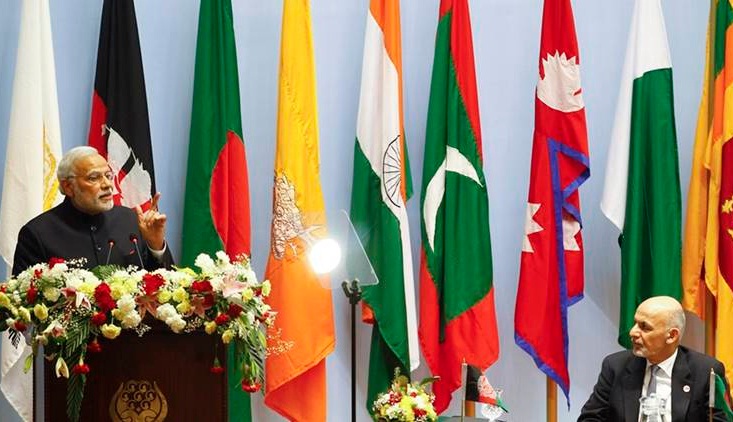Afghanistan is considered to be part of Central Asia due to its geography, shared culture, history and traditions but it is now a member of the South Asia Association for Regional Cooperation (SAARC). Thus, making it part of South Asia, officially. For many years, Afghanistan was considered a weak country by South Asians, especially its adventurist neighbor Pakistan. The latter is hell-bent on making it a satellite-state to have leverage over India and Iran. The rivalry between Pakistan and Afghanistan is as old as inception of the former because Pakistan was created while dividing the latter. Thus, Kabul would never bend to Islamabad, no matter how many groups and warlords are supported by Pakistan. This is writing on the wall which cannot be changed. Realizing it, especially after fall of the Taliban regime in 2001, Islamabad has brought a slight shift in its Afghan policy. Pakistan is pretending to be the victim now. The shift is neither positive nor convincing because evidences contradict claims of Pakistani authorities. As far as Pakistan’s policy regarding South Asia is concerned, she wants to be the regional power having strong say in internal and external affairs of the SAARC member countries. Islamabad has sent fighter-pilots to Sri Lanka to upset India. Pakistani leaders have invited Maldivian top officials and reciprocated the visits. Likewise, Islamabad is approaching Kathmandu from every route to enter Nepal into her orbit. When it comes to Bangladesh, she has not forgotten the massacre. Boycott of the previous SAARC summit in Pakistan proved that this game is not working. Afghanistan played key role in convincing the SAARC members to boycott the summit as Pakistan sponsoring terror outfits—the very organizations that are banned by the UN and US and causing destruction in South Asia. Kabul has been seen as a major potential ally by Central Asian countries and Iran. Similarly, Afghanistan enjoys friendly ties with Saudi Arabia and UAE when compared to Pakistan. UAE and Saudi Arabia are cautious about Pakistan. Islamabad has realized it but she cannot accept it publicly as Pakistani military establishment has deceived the civilians for too long and it cannot afford losing their support; though, it is minor. What is important to realize is that Pakistan’s policy was never defensive but aggressive. It is not about defending either the western or eastern frontiers or both. The frontiers are not defending by Pakistani military but militants. Islamabad has these terror groups in arms. Wanted militants are roaming Pakistani roads and streets freely. They are escorted by police squads. Looking at the broader regional picture, one can say that Afghanistan has emerged as a major player. Foreigners have no role in it, because Kabul never allowed any country to influence its external policy. Moreover, the assumptions in Pakistan that Afghanistan would fall after 2014 has become a myth. The country is standing stronger than ever. What is important for Afghan leaders is to maintain the pace of progress in every sphere. Any wrong step would benefit the rival.

 Afghanistan Times
Afghanistan Times



